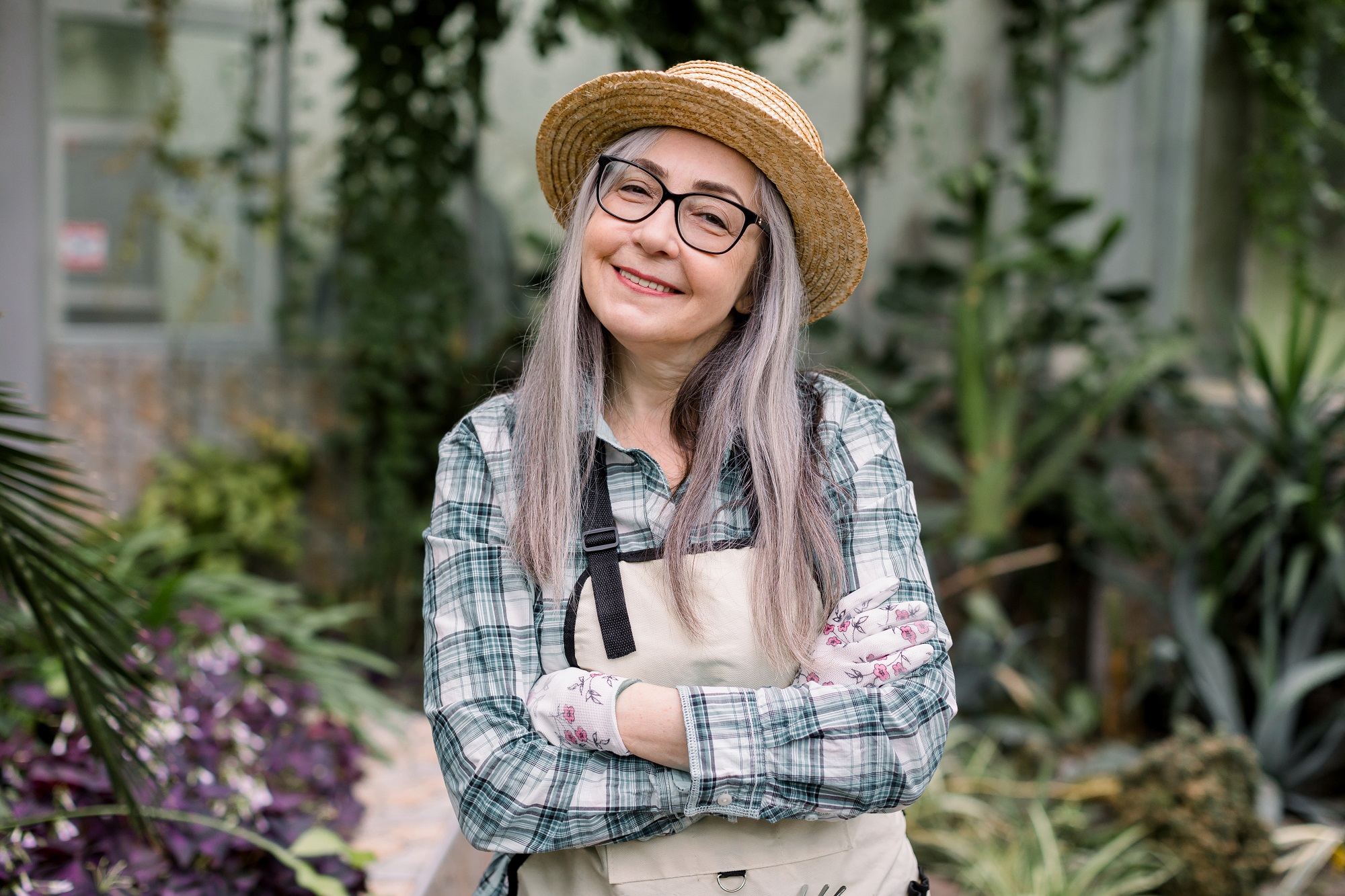
Benefits of Gardening for Seniors
August 30, 2022The sights and smells of a fresh garden are enough to boost the mood of anyone most of the year. For seniors, however, the benefits of gardening are far more than a literal breath of fresh air. According to a study conducted by SAGE Open Med, there is a positive correlation between gardening and positive aging.
When one thinks of gardening, it’s usually the spring months that come to mind. However, late summer and early fall are great times of year for seniors to start learning about gardening. It allows them to be involved in harvesting seasonal fruits and vegetables at community gardens, and to plant some of their own cool-season crops.
What are the benefits of gardening for seniors?
Gardening is the perfect hobby for seniors who want to get a little exercise and get outside. Novice and experienced gardeners alike find joy in watching something they created grow. It’s good for morale, and it’s good for physical health.
- Exercise that doesn’t feel like exercise. For many people, forcing themselves to get up and get their heart rate elevated is difficult. Gardening gives seniors an outlet for physical activity that is different than traditional exercise. It burns calories and helps lower blood pressure.
- Natural stress relief. Long-term stress has a powerful, negative impact on one’s overall health. Gardening has been shown to lower levels of cortisol, the hormone that causes stress and increases serotonin or the “happy” hormone.
- Boosting the immune system. Getting messy is better for one’s health than one might think. The “friendly soil bacteria” (mycobacterium vaccae) is shown to be good for allergies, psoriasis, and asthma.
- Strengthen bones. With exercise comes improved bone health—but it’s more than that. More time outside exposes seniors to higher levels of vitamin D. This is crucial to overall bone health. However, older adults should wear proper sun protection while gardening.
- Decreased risk for dementia. One 16-year-long study in Australia found a correlation between the decreased likelihood of dementia and gardening. This may be due to sensory stimulation, which is shown to improve cognitive behaviors.
- A sense of accomplishment. Having something to nurture provide many seniors a sense of satisfaction. For those who may be receiving help for their activities of daily living, having this sense of accomplishment does a great deal for their mental health.
- Improved brain health. Gardening encourages patterned behaviors in seniors. They have to remember to water and weed plants regularly, which may trigger more memory habits.
Some considerations for seniors in the garden
Before you jump outside with your gardening tools, there are some age-related concerns you should keep in mind about gardening for seniors. Be mindful of thinning skin, skeletal issues, and vision problems when gardening. Garden with a friend, family member, or caregiver to ensure you stay as safe as possible.
While gardening affords older adults several physical benefits, it can exacerbate other problems. Consider these garden adjustments to make the process more fun, effective, and easier.
- To avoid too much bending and crouching, consider vertical garden beds. Wall and trellis spaces allow seniors to stay upright while gardening. Raised garden beds also limit the amount of stooping you have to do.
- For more comfortable gardening, try to stay in shaded areas and have a portable chair available for you. Use lightweight tools for ease of handling. If you already have tools on hand, modify them with foam, tape, or plastic tubing for better grip.
Stay safe outdoors
August and September can still have quite warm days in the Chicago area. When gardening outdoors, it is important that you do what you can to stay safe in the heat. Get outside in the earlier hours of the day, wear lightweight clothing, stay hydrated, and wear proper sun protection.
Gardening comes with a few additional challenges seniors should be aware of. You may work with chemicals and fertilizers, which can cause negative reactions when mixed. You should also be mindful of sharp tools so you don’t accidentally harm yourself. Wear shoes with traction to avoid accidental slips and falls.
Independent living with Home Care Powered by AUAF
As we age, it’s natural to need help with home care activities we once found simple. Instead of shying away from it, embrace the support. An in-home caregiver can assist with whatever personal care activities you struggle with, as well as foster your new hobbies by picking up what you need from the store.
Our in-home caregivers can help you stay in the comfort of your home for longer. Learn more about our services by calling us at 773-274-9262.
Articles:
-
How to Use FaceTime: a Senior’s Guide
March 20th, 2024 -
The Best Organic Cleaning Products for Caregivers
March 19th, 2024 -
Celebrating St. Patrick’s Day with Seniors
March 14th, 2024 -
Intellectual Activities for Seniors to Keep their Brains Stimulated
March 13th, 2024 -
Tips for Communicating with Seniors with Hearing Loss
March 12th, 2024 -
How to Learn a New Language as an Older Adult
March 7th, 2024 -
Foods that Support Bone Health in Seniors
March 6th, 2024 -
A Note to Our Staff for Caregiver Appreciation Day
March 1st, 2024 -
The Importance of a Senior/Caregiver Bond
February 21st, 2024 -
Recreational Sports as Fitness for Seniors
February 27th, 2024 -
Exploring the Wonders of Reminiscence Therapy
February 15th, 2024 -
Staying Educated on Alzheimer’s Disease and Dementia Care
February 14th, 2024
Call Now! 773.274.9262






